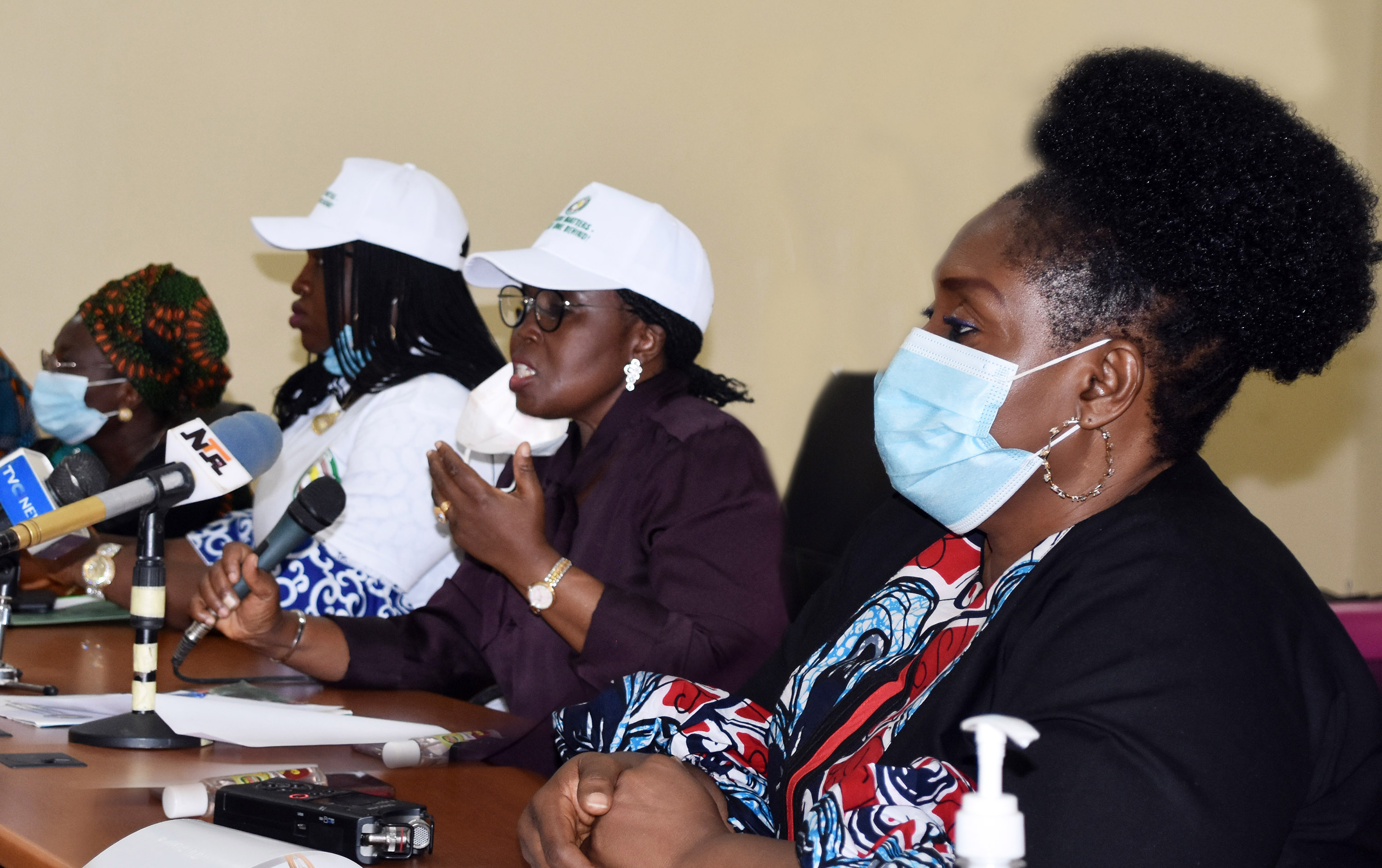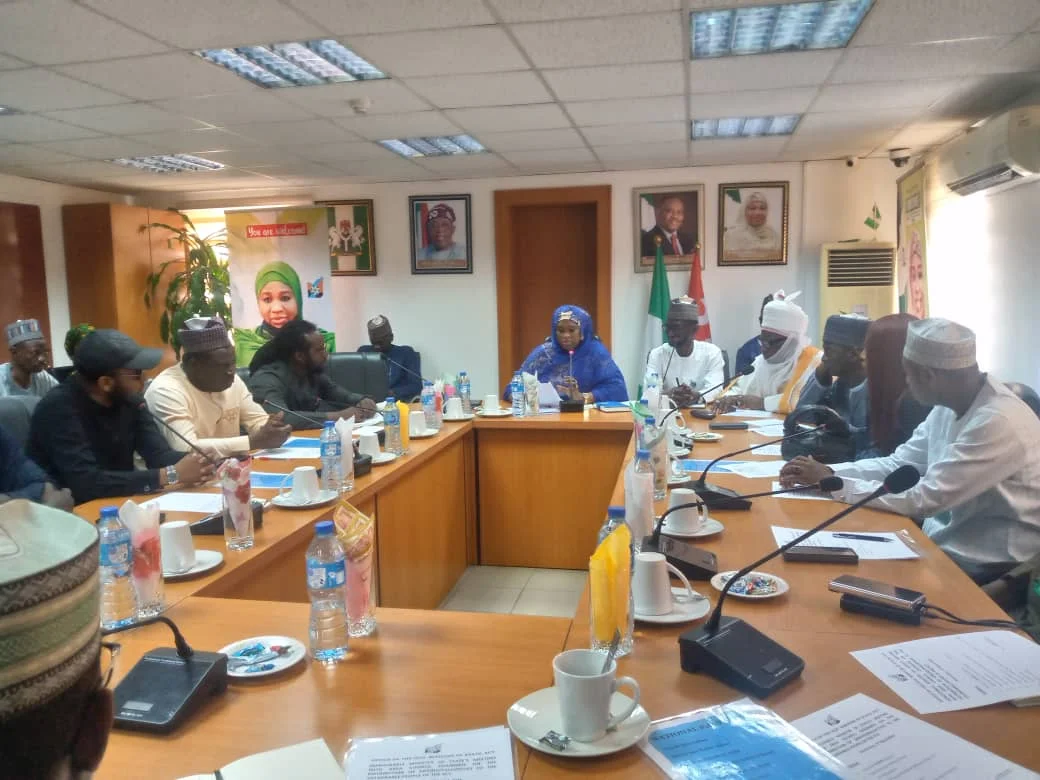Business
AfCFTA: ECA Tasks Member Countries On Free Movement Protocol

Coordinator, African Trade Policy Centre (ATPC), Economic Commission for Africa (ECA), Mr David Luke, has charged member countries on the significance of the free movement protocol.
Luke gave the charge to an International Organisation for Migration (IOM) side event on the sidelines of the commission’s ongoing 53rd session of its Conference of Ministers in Addis Ababa on Saturday.
He said that the protocol would be critical to securing gains from the African Continental Free Trade Area (AfCFTA).
The event was tagged “Digitalising Migration Response to harness Africa’s Economic Development and Demographic Dividend in the Covid-19 Era.”
The ECA representative said the four basic freedoms which made up the African continental and regional integration agenda were in the movement of people, capital, goods and services.
He recalled that the Abuja Treaty establishing the African economic community, adopted by the defunct Organisation for African Unity in 1991, envisioned the “free movement of people and the rights of residence and establishment”.
“This represents the fifth phase of the Abuja Treaty which is expected to be realised by 2023.
“The Protocol to the Treaty on the Establishment of the African Economic Community relating to Free Movement of Persons, Right of Residence and Right of Establishment was adopted in January 2018 together with a comprehensive implementation roadmap.
“Yet there has been a slow pace of signature and ratification of the protocol,” he said.
According to the ECA, the protocol must be ratified by 15 member states to enter into force and 32 have signed but only Rwanda, has ratified it.
Luke said the concept of free movement of persons was often poorly understood.
“We must do better than this. Freer movement cannot depend only on the AfCFTA Protocol on Services that allows for movement in relation to investment and service delivery.
“True freedom of movement in Africa would instead allow African citizens to move to, live in, work, or provide a service or a business in another country on the continent, under the same or similar conditions as a citizen of that country.”
He added that there might be a need to redesign the freedom of movement protocol to respond to concerns raised by policy makers.
He noted that this was to ensure that Africans could benefit fully from the liberalised market being created by the AfCFTA.
“Regional Economic Communities (RECs), which have faced their own challenges with ratification and implementation of Free Movement Protocols, have a role to play in promoting increased understanding of the free movement concept.
“It is the free movement of people which will boost intra-African trade under the AfCFTA, and enable African countries to proactively and swiftly respond to the twin green and digital transitions we are faced with in the 2020s,” Luke said.
He stressed that Africa could not afford to not build “seamless borders for tomorrow’s Africa,” and further proposed that the ATPC and IOM organise a series of awareness raising events.
He said the events would be organised with the Rwandan Government as a principal partner.
For his part, Mr Jean-Denis Gabikini, Acting Director, Directorate of Economic Development Integration and Trade, African Union Commission, said various challenges in the continent has resulted into increased migration by youths.
“At least 60 per cent of Africa’s population is aged below 24 years and its active contribution to economic growth, which is reflected by increased incomes and development, is not there.
“Instead of making the most of this dividend we are unable to offer jobs to our youth, forcing them to seek livelihoods elsewhere,” Gabikini said.
The 53rd session of the ECA Conference of African Ministers of Finance, Planning and Economic Development is tagged “Africa’s Sustainable Industrialisation and Diversification in the Digital Era in the Context of COVID-19″.
It is held onsite and online and would end on March 23.
Business
NCDMB Tasks Media Practitioners On Effective Reportage

Business
FCTA, Others Chart Path To Organic Agriculture Practices

The Federal Capital Territory Administration (FCTA) and other stakeholders have charted path to improved organic agriculture practices nationwide.
At a 2024 national organic and agroecology business summit held recently in Abuja, stakeholders took turn to speak on the additional areas of promoting the practices.
The Mandate Secretary, FCT Agriculture and Rural Development Secretariat (ARDS), Lawan Geidam, advocated for sustainable practice to develop resilient food systems that will benefit people.
The event, with the theme,”Towards Policies for Upscaling Organic Agroecological Businesses in Nigeria”, is aimed at fostering growth in the organic agriculture sector.
Geidam, who was represented by the Acting Director, Agric Services, in the Secretariat, Mr. Ofili Bennett, emphasised the success of organic and agroecological farming, reling on the active involvement of farmers, businesses and consumers.
He reassured attendees that the FCT Administration, led by the Minister, Nyesom Wike, and Minister of State, Dr. Mariya Mahmoud, remains dedicated to supporting initiatives that enhance the livelihood of residents.
Geidam described the partnership between the Secretariat and the organic and Agroecology initiative for a monthly exhibition and sale of organic products in the FCTA premises as a testament to this commitment.
“The ARDS remains committed to driving policies and initiatives that align with national goals and global standards”, Geidam said.
On her part, the Chairperson of Organic and Agroecology Initiative, Mrs. Janet Igho, urged residents to embrace healthy eating habits to sustain a good lifestyle. She stressed the importance of adopting organic practices, highlighting the benefits of going organic, growing organic and consuming organic products.
Igho expressed her optimism regarding the Agricultural Revival Programmes as articulated in President Bola Ahmed Tinubu’s “Renewed Hope Agenda”, which aims at fostering food and nutrition security.
She also extended her gratitude to ARDS for graciously allocating a space in the FCTA premises for the exhibition and sale of organic products, noting that the platform has been effectively used to advance the promotion of organic agriculture in FCT.
Igho outlined several benefits of organic agriculture which includes improved soil health, increased biodiversity, availability nutritious and healthy food and a reduced carbon footprint.
Stakeholders at the summit, underscored the critical need for enhanced private sector involvement and robust capacity building initiatives for farmers.
They highlighted the importance of implementing supportive policies to foster the growth of the organic agriculture sector.
In the light of the significant challenges facing Nigeria’s agricultural landscape, stakeholders decided that organic agricultural practices present sustainable solutions and a pathway for a more resilient and productive farming systems.
The three-day summit featured exhibitions showcasing organic foods, fruits, vegetables and fertilizers, providing an opportunity for residents to better appreciate the benefits of production and consumption of organic agricultural products.
Business
Dangote Refinery Exports PMS to Cameroon

-

 News4 days ago
News4 days agoAny Threat To Nigeria’s Security‘ll Be Resisted – Ribadu
-
Rivers13 hours ago
RSG Condemns Acts Of GBV … Calls For Collective Action
-
Opinion9 hours ago
Nigeria’s Electricity Sector: Need For Restructuring
-

 Opinion4 days ago
Opinion4 days agoGender Equity And Women Empowerment
-

 News4 days ago
News4 days agoHYPREP Distributes Starter Packs To Trainees
-

 News12 hours ago
News12 hours agoForge Unity For Progress, Fubara Urges Nigerian Youths …Accepts Beacon Of Hope Award
-
Politics8 hours ago
Inclusivity: Chief Whip Makes Case For Women
-

 Politics4 days ago
Politics4 days agoAlleged Ugochinyere’s Expulsion, Null, Void, No Effect – PDPNWC

